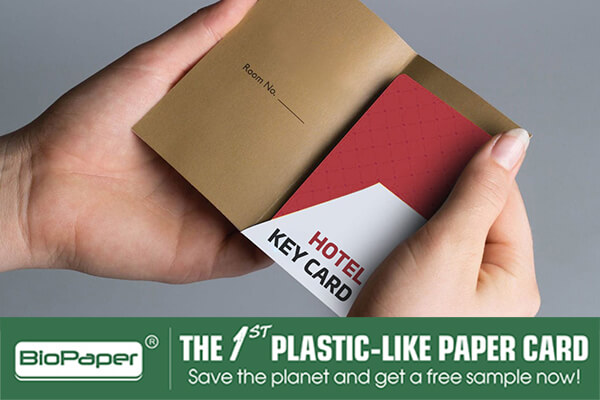When one is in close proximity of a keycard lock, he or she is expected to swipe or insert the magnetic stripe card, NFC, or RFID card through the lock. When the card is inserted, shining LEDs through a pattern of holes in the lock physically move detainers in the locking mechanism detecting the result. These cards are essential in the opening of doors or barriers in the hotel premises. However, the manufacture, usage, and disposal of these hotel key cards have led to environmental pollution. Therefore, before you place a plastic key card order, think about the following;
PVC card lifecycle
Even though it’s the most used and cheapest card in the hotel industry, PVC cards are the most environmentally damaging plastic that poses serious threats to human health too. PVC cards have greatly contributed to the world’s growing solid waste crisis due to extreme pollution from production, hazards from fires, and toxic chemical exposure during use. Throughout its lifecycle, Of all plastics, PVC is the most environmentally damaging. The toxins that are released throughout its lifecycle build up in the water, air, and food chain. The result is hormone disruption, severe health problems including cancer, and immune system damage. The fastest and largest growing use of chlorine is seen in PVC production. Whenever chlorine-based chemicals are produced, used, or burned, dioxin compounds are unintentionally created. During the various stages of PVC cards production, large amounts of dioxin are produced. Dioxin is the most toxic chemicals produced and there is no safe level of dioxin exposure. Therefore, any dose, no matter how low can result in severe health damage and significant health threats. The harmful effects of PVC production are felt everywhere across the globe. PVC on its own is almost useless that is why it must be combined with a number of additives to give it the properties desired in the final product, that is the hotel key card. These additives include stabilizers containing dangerous heavy metals (like lead), toxic plasticizers (like phthalates), fungicides, and other toxic substances. PVC cards are flame resistant but when burnt, they release toxic hydrogen chloride gas. When inhaled this gas is lethal. Among all the plastics, PVC is the least recyclable even though recycling is not a solution to the environmental problems created during production and usage. This is because of the many additives that the cards contain which makes recycling expensive and impractical.
PVC cards and carbon footprint
PVC cards have a high potential for global warming than other plastics due to high energy consumption and CO2 gas emissions. These emissions are caused when the PVC cards are burnt which leads to toxic air pollution.
Conclusion
PVC cards are used in many hotels across the world. Due to their environmental impact when used, PVC cards have caused serious effects including global warming, increase in carbon footprint, environment degradation, ozone layer depletion, severe health problems, and infertile land. It’s recommended to use eco-friendly alternatives to PVC cards like BioPaper cards to conserve the environment.
.png)
